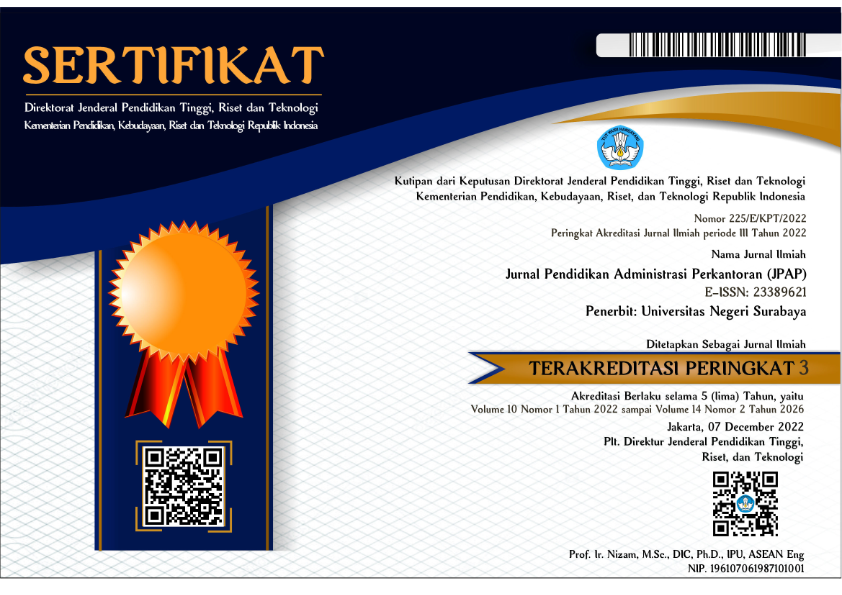Integration of e-Markel and Digital Literacy in Improving Learning Outcomes Through Student Motivation
DOI:
https://doi.org/10.26740/jpap.v13n2.p540-551Abstract
Phenomenon/Issue: The problem in this study discusses how E-Markel, which is one of the e-modules, and digital literacy skills and learning motivation in improving student learning outcomes.
Purpose: The purpose of our research is to emphasize efforts to understand how learning using e-modules such as E-Markel combined with their digital literacy skills can affect motivation in learning and mastery of e-modules, so that it will have an impact on their learning outcomes.
Novelty: The main innovation emphasized in this study is to reveal the relationship between technology-based learning media, digital literacy and learning motivation in improving learning outcomes.
Research Methods: The approach used is quantitative with the type of explanatory descriptive research, with a research sample of 106 respondents. Data collection using a google form with a questionnaire using a 7-point likert scale, and data analysis using Structural Equation Modeling (SEM) using the Partial Least Squares (PLS) method.
Results: The outer model shows that each statement has a good validity value [factor loading > 0.70] and a good reliability value [Cronbach's alpha and composite reliability appear to have a value of > 0.70], in addition to the discriminant validity value also shows a significant difference between constructs [HTMT < 0.90]. Furthermore, the inner value of the model is known to be that all regression pathways are also significant [p-value < 0.05], and the mediating effect has a complementary effect.
Research Contributions: Research Contributions: The implication of this research is more to provide a more comprehensive understanding of the importance of collaboration between e-modules, digital literacy and learning motivation to student learning outcomes
 Abstract views: 105
,
Abstract views: 105
, PDF Downloads: 107
PDF Downloads: 107









